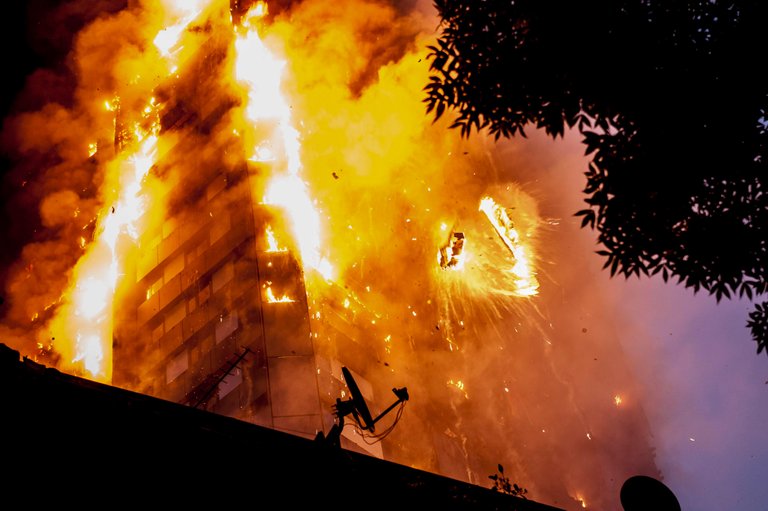Last week dozens of people burned to death in London, England. Children screamed, perished, jumped and were thrown from windows by their desperate mothers. Perhaps you didn't here about it, perhaps it was too far away from your own bed for you to really care- but if you think it doesn't affect you, you are terribly mistaken.

Placing blame for this tragedy is a remarkably complex, full-time effort- for the faults were across the board and all the way up the line. Complaints by residents were ignored, fancy new cladding added last year made a shiny (and very flammable) facade on this aging 1970s building (installed by the company Rydon), the management company wanted to save money so didn't go with the flame retardant version, a government that had been cutting back social housing funding for years is in power.
So who do we blame? The management company? That seems a likely and understandable place to start. They are after all the ones who decided that saving 2 pounds per square foot in cost for the cladding (an added roughly 8,000 on a 18 million project) was worth more that their resident's lives. All while sitting on a surplus of over 200 million in their coffers. However, a more disturbing truth is that this pattern of ignoring people who don't have enough, or as much money, is a systemic and cultural problem. Not just in England, no, but in the entire western world.

“When society places hundreds of proletarians in such a position that they inevitably meet a too early and an unnatural death, one which is quite as much a death by violence as that by the sword or bullet; its deed is murder just as surely as the deed of the single individual,” Freidrich Engils wrote in 1845, in The Condition of the Working Class in England.